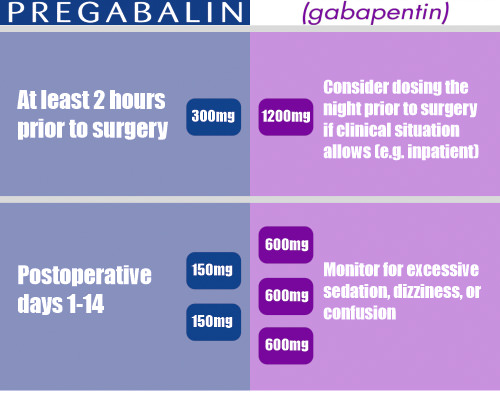Obesity and depression: brain work and metabolic problems
Most of the people know little about inflammation. They believe that it is formed after injury or during infection, when swelling, redness and pain develop in the affected area. However, this process also occurs inside the body, including with metabolic disorders and weight gain, causing changes in the brain. In addition to all other problems, the system inflammation may play a role in the development of obesity and depression. But how are they related?
Inflammation: a role in the body
If people hear about inflammation, they most often represent infected wounds or colds. And usually this term is associated with painful sensations, rather than internal healing processes. Any damage to the tissues (skin, mucous membranes, internal organs) immediately causes inflammation in order to restore the integrity of the body and normalize the metabolism.
But inflammation can also occur when it is not needed at all, and this can cause problems. In some people, the inflammation is sluggish and barely noticeable, gradually leading to serious metabolic disorders. Currently, many experts believe that this type of chronic inflammation is responsible for a number of chronic diseases, including depression and obesity, heart and vascular lesions.
When inflammation spreads to the beta cells of the pancreas, diabetes develops. When it affects the immune system, arthritis, psoriasis and many other diseases occur. This type of inflammation (systemic) gradually spreads, damaging organs and causing metabolic disorders.
Weakened brain signals
When inflammation becomes systemic, it not only damages the organs, but also prevents the brain from sending signals to the rest of the body. In many pathological conditions, problems begin with the hypothalamus. This is the command center of the brain, and it receives various hormonal signals that tell the brain when a person is tired or hungry, what to do with incoming calories. Then the brain makes a decision, sending guiding impulses.
When systemic inflammation occurs, proteins called inflammatory cytokines distort these hormonal signals. As a result, inflammation can cause conditions such as depression and obesity, which were linked together long before the effects of the inflammatory response were clarified.
When depressed, these cytokines negatively affect the brain, causing a variety of depressive symptoms, such as sad mood, fatigue, sleep disorders, and social and behavioral disorders. Similarly, inflammation leads to obesity, although in this case the effect on the brain is more complex and includes additional conditions.
Metabolic syndrome, overweight
Systemic inflammation has recently been associated with metabolic syndrome, which is a group of symptoms that increase the risk of chronic diseases such as heart disease, stroke and diabetes. These symptoms include hypertension, low HDL cholesterol (“good” cholesterol), elevated glucose and triglycerides in the blood, as well as excess weight, especially in the waist area. Most people with metabolic syndrome are obese and inactive, so these symptoms have become associated with being overweight. However, many people who even have severe obesity do not have signs of metabolic syndrome. Then they fall into the category of people with metabolically healthy obesity.
This means that although there is excess weight, but if you perform blood tests and evaluate the metabolism, there are no serious metabolic abnormalities, since these people probably do not have systemic chronic inflammation. Experts cannot argue that obesity causes inflammation, but changes in metabolism typical of systemic inflammation often lead to an accumulation of excess weight.
Depression and metabolic disorders
The links between inflammation and depression are complex, and scientists are only now beginning to understand how these diseases affect each other. Although severe clinical depression can lead to metabolic changes that cause inflammation, experimental studies have shown that a systemic inflammatory response, in turn, can also contribute to the development of depression. A 2015 study found that people with depression have a 30% higher inflammation in the brain. It was one of the first studies that specifically showed that a systemic inflammatory response and impaired metabolism in depression are detected, even when other conditions are absent.
However, depression is a complex pathology and can hardly be caused by inflammation alone, similar to obesity.
Many people usually think of depression as a mental disorder or mental health problem. But depression is a disorder with deep biological roots. This is the same physical problem as the mental one, it significantly affects the metabolism, the metabolism of hormones and the work of the organs.
Fight against obesity and systemic inflammation
Identifying a systemic inflammatory response is an expensive procedure. It is carried out only in scientific laboratories. But the patients themselves can help their body cope with the systemic inflammatory response, as well as control weight gain, while fighting obesity.
Of course, the best medicine in this case is diet. Some traditional products of our table help to increase the level of inflammatory cytokines. The two biggest culprits are omega-6 fatty acids and excess insulin, caused by the consumption of starchy carbohydrates.
To reduce the negative effects, you need foods with omega-3 polyunsaturated fatty acids and high polyphenol content found in fruits and vegetables. These good fats and bright fruits, vegetables, along with lean protein, make up most of the anti-inflammatory diet. Along with diet, a healthy lifestyle and stress management help reduce inflammation, especially in the brain. This is especially important when there are obesity and metabolic syndrome.

